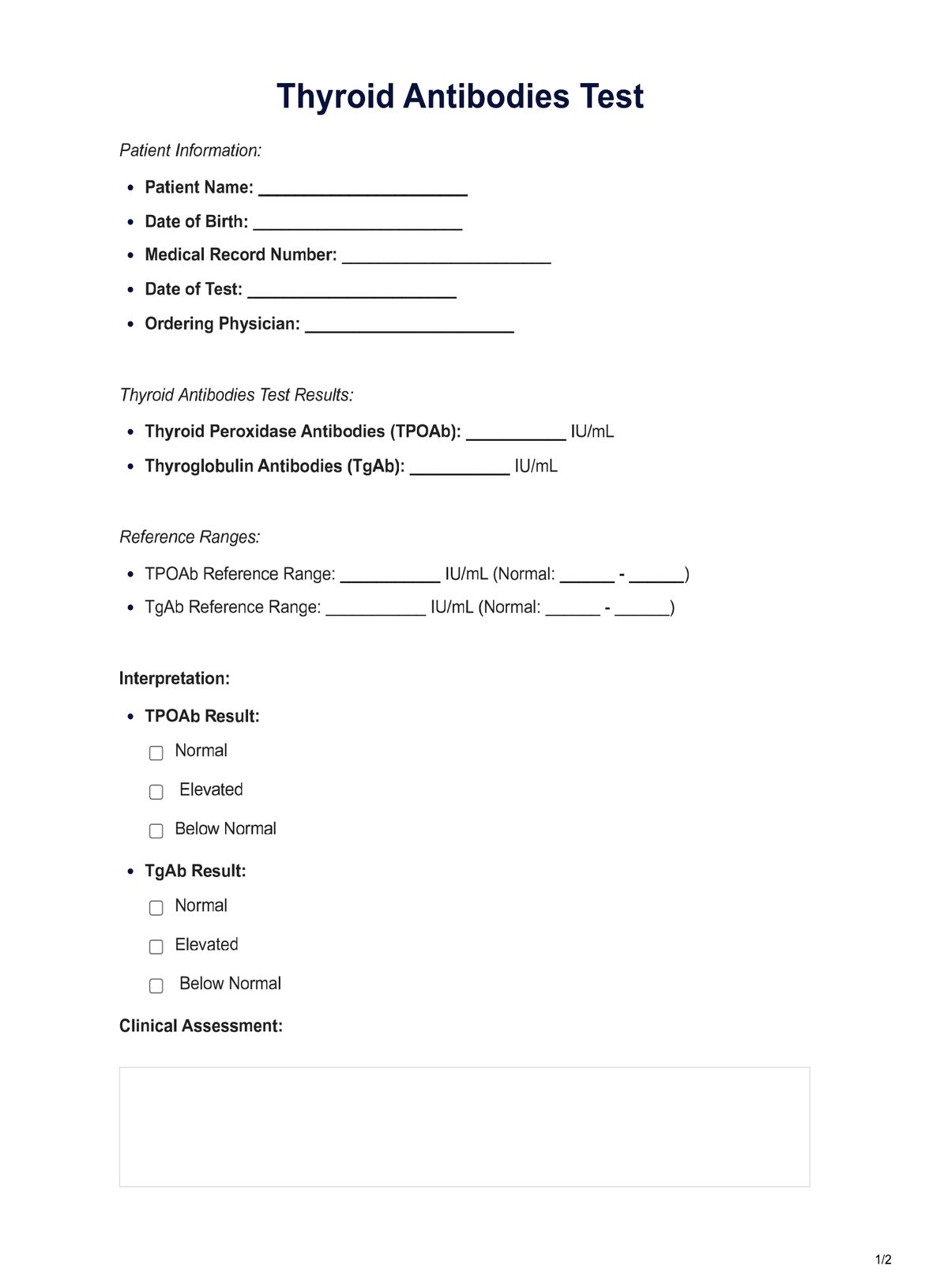Based on clinical symptoms and other tests, this test is ordered when a healthcare practitioner suspects an autoimmune thyroid disorder, such as Hashimoto's thyroiditis or Graves' disease. It can also be used for routine thyroid health monitoring, especially in patients with a family history of thyroid disorders.












